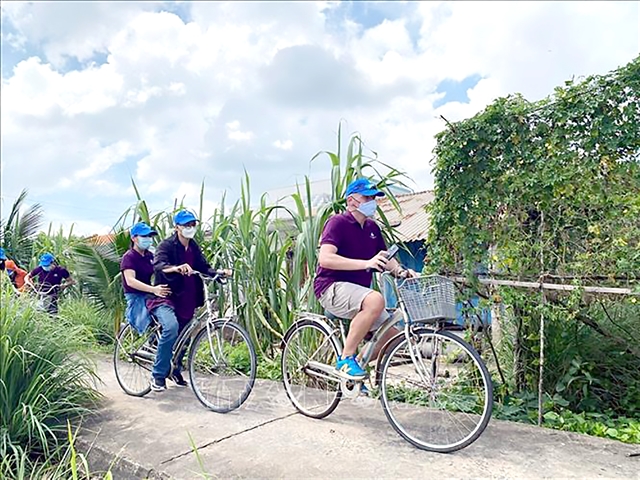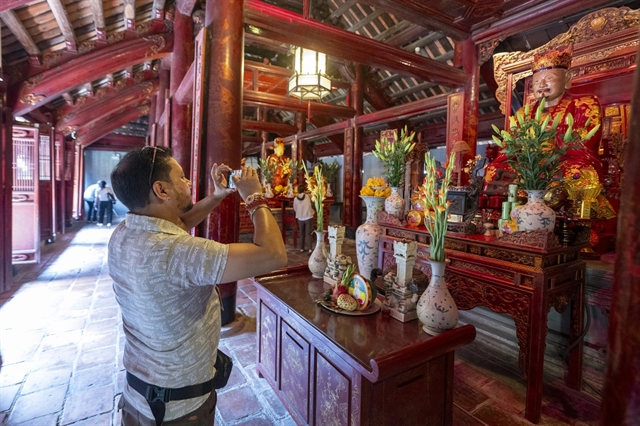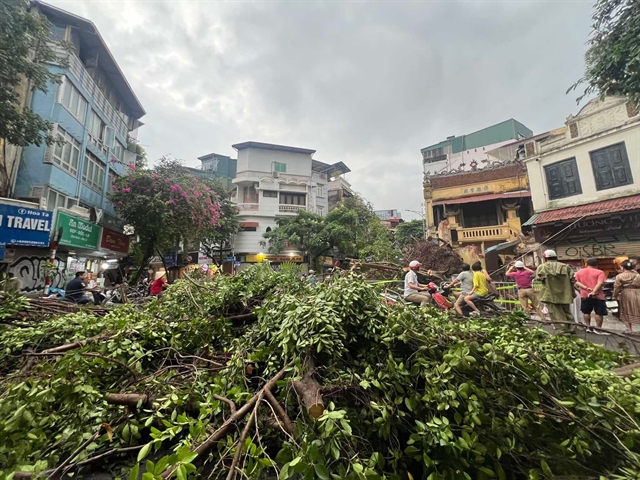▌Câu trả lời hay nhất
In line with the global trend,sc heerenveen HCM City has identified green tourism as a development strategy to raise its competitive advantage in the coming years.
 |
| Visitors explore Thiềng Liềng Island in HCM City’s Cần Giờ District on bicycles. — VNA/VNS Photo |
HCM CITY — In line with the global trend, HCM City has identified green tourism as a development strategy to raise its competitive advantage in the coming years.
Municipal People's Committee vice chairman Nguyễn Văn Dũng said tourism trends have evolved into more sustainable practices that protect the environment, natural resources, and local cultures.
About 97 per cent of Vietnamese tourists surveyed expressed a desire for more sustainable travel in the next 12 months.
Some 75 per cent of tourists were willing to pay more for certified sustainable travel options, and 83 per cent displayed a desire to contribute to making their destination cleaner and greener after their visit.
The city has received six prestigious awards at the World Travel Awards held in Manila, the Philippines, and the World MICE Awards in Berlin, which recognise the efforts of the city’s tourism industry and related sectors.
“These validate the city’s strategy of developing key tourism products aligned with the city's strengths including festival - event tourism, MICE tourism, and business tourism,” he said.
To further promote and develop these key products, the municipal People's Committee has tasked the Department of Tourism with coordinating with other departments to develop policies and implement comprehensive solutions, including integrating tourism development with the city's socioeconomic and overall development plans.
Dũng said that after researching the market, the city’s current priority in tourism is holidaymakers from Northeast Asia (Japan, the Republic of Korea and China), North America (the US and Canada), Western Europe (Germany, the UK and France), Australia, and Southeast Asia.
Other markets like India and the Middle East are classified as having potential, and should lead to more promotional campaigns, he said.
However, the city’s growth is facing numerous challenges, including the imperative of sustainable development.
As a comprehensive and highly influential economic sector, tourism is positioned to lead the green transition, aligning with the UN's 17 sustainable development goals and the commitment to reducing emissions and achieving net-zero emissions by 2050.
“Therefore, going green is an inevitable trend to protect natural resources and indigenous culture,” he said.
 |
| Bạch Đằng Wharf Park along the Sài Gòn River bank in HCM City’s District 1 is a popular destination for both local and foreign visitors. — VNA/VNS Photo Thu Hương |
When it comes to green spaces, tourists are impressed by destinations like Củ Chi and Cần Giờ districts, the latter being recognised by UNESCO as Việt Nam's first biosphere reserve.
Cần Giờ District is also the pilot area chosen by the city government to transition from fossil fuels to clean energy.
In recent times, there has been a surge in community-based tourism, and eco-tourism activities such as tree planting, cycling, and environmental cleanup in the city.
The community-based tourism model in Thiềng Liềng Island in Cần Giờ District, which is being developed as a net-zero destination, has garnered significant attention from tourists and travel businesses.
With the theme "Sustainable Travel - Creating Future” for the 18th International Travel Expo HCM City held from September 5 to 7, the city also offered a series of forums and workshops on this topic that marked a significant step in developing the city's green tourism strategy.
This includes reviewing and refining solutions, criteria, and specific action plans, as well as developing dynamic mechanisms and policies to drive the city’s tourism industry forward.
This also aligns with the National Assembly's Resolution 98 on piloting some specific mechanisms and policies for the city's development.
In the first eight months of this year, the city welcomed more than 3.4 million international tourists, an increase of 21 per cent compared to the same period last year, and about 23 million domestic tourists.
Revenue of the tourism sector is estimated to reach VNĐ123 trillion (US$5 million), an increase of 15 per cent year-on-year. — VNS












